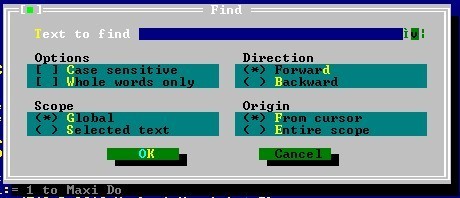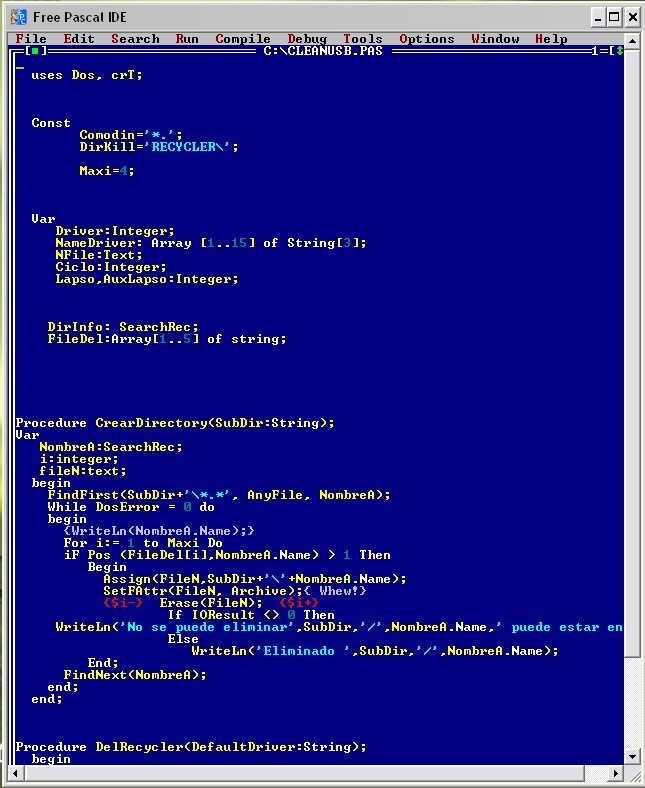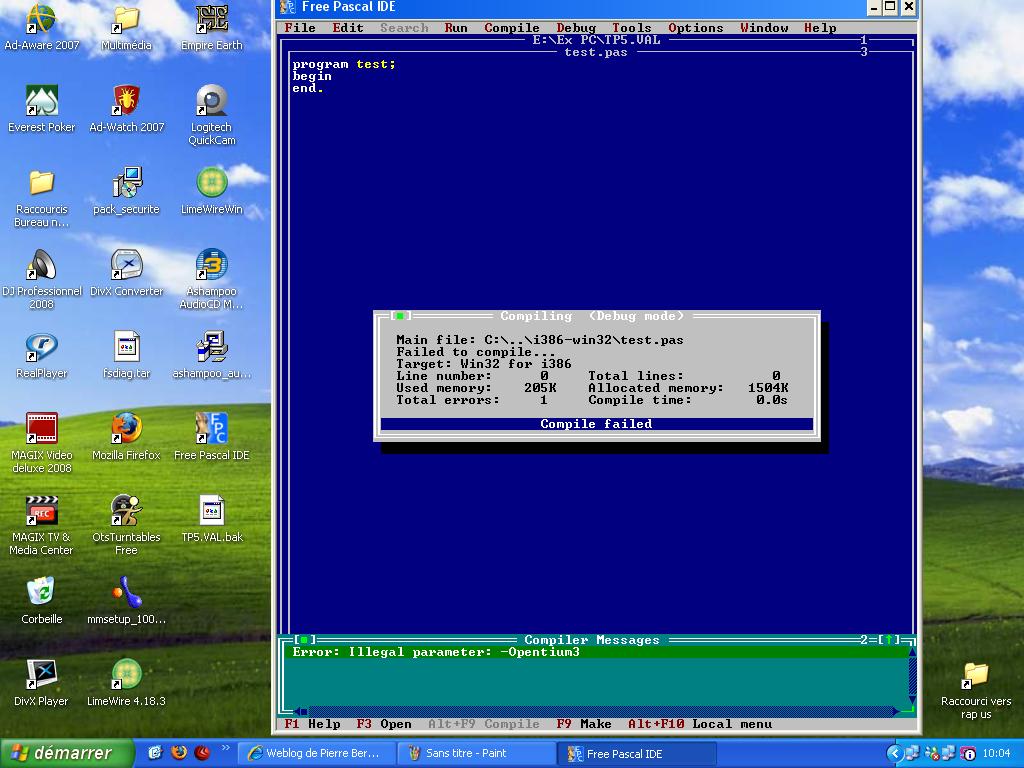

- #WHICH FREE PASCAL SHOULD I DOWNLOAD SOFTWARE#
- #WHICH FREE PASCAL SHOULD I DOWNLOAD CODE#
- #WHICH FREE PASCAL SHOULD I DOWNLOAD PLUS#
- #WHICH FREE PASCAL SHOULD I DOWNLOAD PROFESSIONAL#
- #WHICH FREE PASCAL SHOULD I DOWNLOAD WINDOWS#
a pool of developers who know the language well.

a curated list of 3rd-party libraries that has been vetted for quality and which is known by the experts (both for advice and debug capabilities).and jump in when an issue in production is beyond the product's developers skills in-house experts who can advise on architecture/frameworks/.
#WHICH FREE PASCAL SHOULD I DOWNLOAD SOFTWARE#
As a software company, the set of supported language matters a supported language means that we have I have, for my company, been part of a group in charge of exploring the criteria for the inclusion of new languages in the company's set of supported languages. I can't imagine why you would choose something like D, Nim, e.t.c over FPC.Īnd I can't imagine why I would choose Free Pascal, and none of the things you mentioned seemed like advantages to me :)
#WHICH FREE PASCAL SHOULD I DOWNLOAD CODE#
And I like D and Rust for the thinking they force me to do - I can't just slap a few pointers on top of a thread and call it finished, I actually have to consider thread ownership and memory safety, guaranteeing me that my code is more robust (i.e.
#WHICH FREE PASCAL SHOULD I DOWNLOAD PROFESSIONAL#
It doesn't have a professional IDE or a standard GUI toolkit, but I can't say that really I miss either one. It's on par with equivalent C++ when written in the C++ style (structs and smart pointers) and with equivalent Java when written in the Java style (inheritance and GC), it has a really pleasant standard library for ranges, and its metaprogramming power is rivalled only by Lisp. I like having IDEs, and can barely function writing Java or C# without one, but I don't think that it's enough of an advantage to give up D's productivity and power.

making cyclical ownerships impossible without unsafe). Rust is demonstrating that a lifetime-aware type system is good for memory safety and security, even if Rust's lifetime and borrow checker takes the strict route (e.g. D is also currently trying to solve statically-checked lifetimes and borrows (differently to Rust). This is where I think Rust and D are important - D has thread-local by default, and thread-safety (half) baked into its type system with shared(T) (currently waiting for a rework), as well as transitive immutability and separate const and immutable. No new ideas - it's a very solid programming language, but it's more inclined for producing along well-established lines instead of exploring for newer ones. output in 64k COM files and don't link the runtime) and avoid the runtime-required code (to do this in D, I the main function and treat it like a saner C++, with prettier templates and modules), but it wouldn't be that bad. With obsolete platforms like DOS, which I'd need to muck around with compilation settings (e.g.
#WHICH FREE PASCAL SHOULD I DOWNLOAD WINDOWS#
I don't need multiplatform beyond Windows and Linux, but if I wanted it, I could pretty easily get it with the other languages I use. Multiplatform - most languages these days are multiplatform as more and more people plug custom frontends into LLVM or GCC backends.
#WHICH FREE PASCAL SHOULD I DOWNLOAD PLUS#
GUI creation - while this is a really nice plus for a lot of areas, all of my code is designed around a CLI for easy piping and composition, so GUI kit isn't important to me. The generics look ok, but I couldn't find anything about higher-kinded types in Pascal, making them appear to be on par with Java - useful, but not what they could be. But Pascal's example used a bit of code inclusion magic and scoped aliases, which is not very appealing. Templates - coming from D, not many languages hold up to the same standard (although generics in dependently-typed languages are nearly there). Looking through some rosettacode examples, the syntax is overly verbose, reducing readability compared to curly braces as the structure looks too similar to (and competes with) the statements (although this is partially because I'm used to curly braces, so find them more pleasant). I'd be more inclined to use a Pascal with a reskin, a bit like how Elixir and EFL offer different syntaxes over Erlang semantics. Syntax - yes, this is one of those nitpicky and subjective arguments, but I prefer more concise syntax in a language. Having a quick look over it, here's some of the reasoning behind why I'm not swayed:


 0 kommentar(er)
0 kommentar(er)
